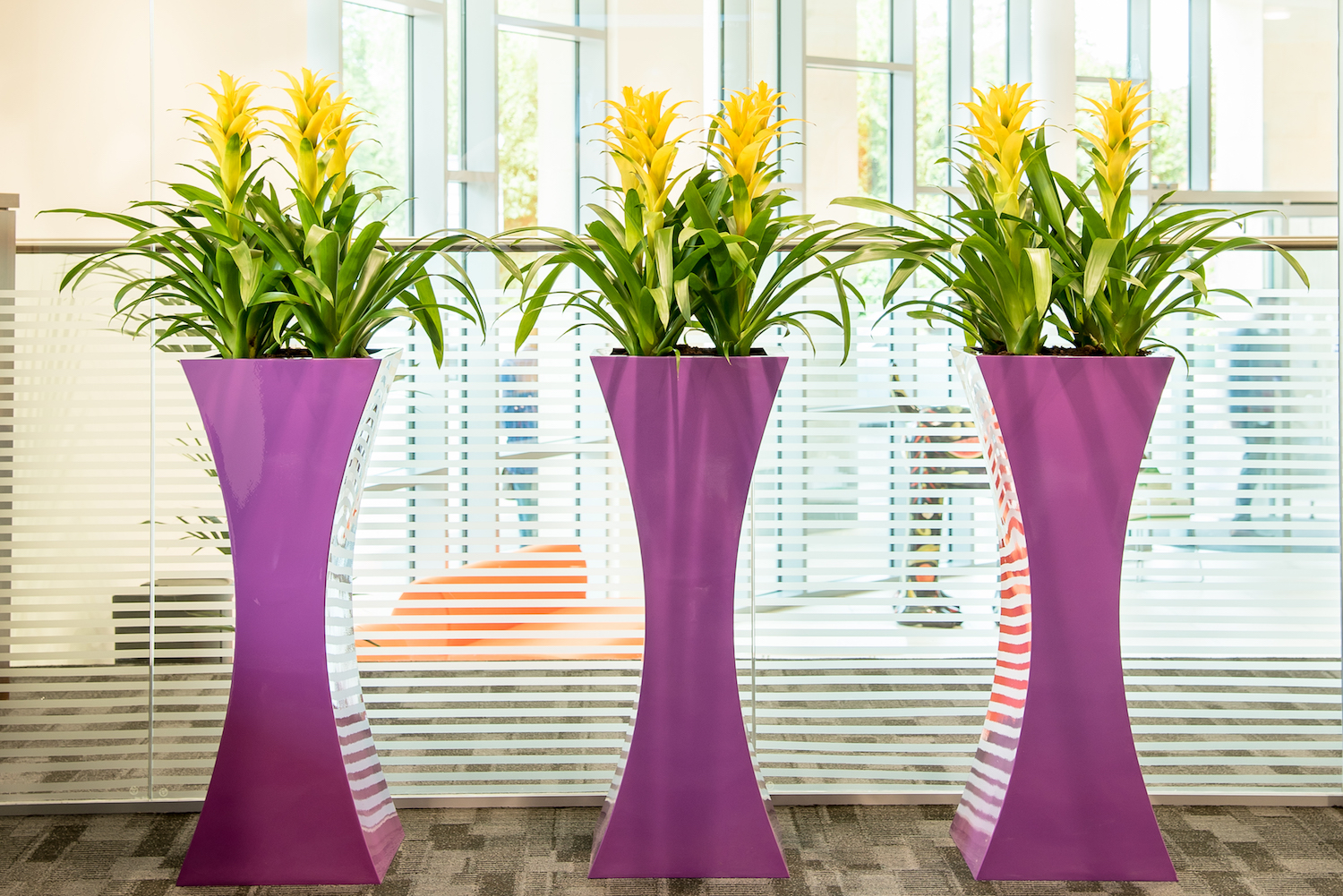For a lot of people, plants and nature are still not considered to be important when it comes to interior workplace design. Anyone can place plants in an office, but a well thought out interior (or exterior) planting scheme can have a real positive impact on company culture, productivity and the overall wellbeing of your employees.
Introducing plants to your working environment reduces stress. In a study conducted in 2010, significant reductions were recorded where plants were located in the office. Including;
Tension & Anxiety – 37% reduction
Depression & Dejection – 58% reduction
Anger & Hostility – 44% reduction
Fatigue – 38% reduction
The closing statement of the study reads:
“This study shows that just one plant per work space can provide a very large lift to staff spirits, and so promote wellbeing and performance.”
So how can interior plants benefit your office or workspace? Here's our top 5!
1. Brand Identity
One of the most obvious ways that interior plant schemes can improve your workplace is the introduction of colour. As well as greenery and colourful flower schemes, you can also introduce your branding & brand identity with customised design and coloured planters. Our work with OVO Energy included some awesome custom brand planters!
2. Boosting Productivity
Employee wellbeing is growing in importance - multiple studies have proved that exposure to nature can increase overall productivity by up to 15%. There are also countless other benefits for your staff that will result in harder working, more content, and generally happier employees - there's no way that can't be anything other than positive!
Interior plating schemes increase stimulation, something that is often severely lacking in 'traditional' office environments. We humans, as a species, need sensory stimulation in order to properly function and if deprived we can become demotivated and uninspired. Interior planting schemes, combined with other natural features, will effect multiple senses including sight, hearing, smell and touch. The natural environment is characterised by a variety of stimulations that can be replicated and introduced in to the working environment - plants being moved by a fan replicates rustling leaves for example.
The different textures available by use of plants provides varied stimulation that is essential to both emotional and physical health. Multi-Sensory environments improve the development of thought, intelligence and social skills.
3. Reduced Noise
Offices and workspaces can be noisy places - noise can be distractive, interruptive and ultimately make employees less productive. Well placed plants and strategic interior planting schemes can help to reduce office noice levels, creating a welcoming, stress-free and more productive environment - the effects of interior plants on noise absorption and reflection is something that has been well documented in a number of studies. Although the bottom line cost of productivity loss as a result of noise in the workplace isn't easily measurable, it doesn't take much to see it in practice.
A recent whitepaper produced by BIAMP looks at the impact of noise pollution and how important it is that both architects and interior designers incorporate acoustic elements to control noise pollution in to their work. Research by The World Health Organisation and the European Union estimates that the annual cost to Europe from excessive noise levels is £30 billion due to lost working days, healthcare costs and reduced productivity.
4. Healthier Environment
Another benefit of interior planting schemes is that they change the physical atmosphere of your office space. Inside spaces don't have to be unhealthy, they can reflect that atmosphere, health and overall wellbeing encouraged by the natural environment. Plants help to remove unhealthy and unwanted compounds (that are discharged from manufactured furnishings, fittings and equipment etc) from the air, meaning that your workplace will be fresher and healthier for everyone.
5. Increased Creativity
As well as the usual 'exercising, reading or listening to music', adding interior plants is another scientifically-proven way to spark imagination. Research completed by a group of researchers at the University of Exeter, found that plants have been shown to increase creativity by 45%, another study by University of Munich and Rochester shows interior plants and natural greenery may enhance creative performance, when viewed before a creative task. Whilst there isn't necessarily a specific plant that will have more of an effect on creativity than another, something that is a little unusual and unique is a good place to start.







